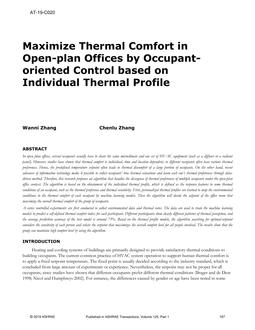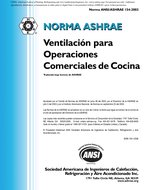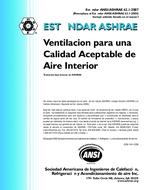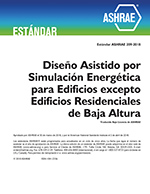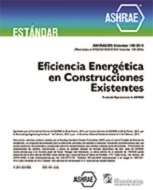Description
In open plan offices, several occupants usually have to share the same microclimate and one set of HVAC equipment (such as a diffuser or a radiant panel). However, studies have shown that thermal comfort is individual, time and location dependent, so different occupants often have various thermal preferences. Hence, the predefined temperature setpoint often leads to thermal discomfort of a large portion of occupants. On the other hand, recent advances of information technology make it possible to collect occupants’ true thermal sensations and learn each one’s thermal preferences through data-driven method. Therefore, this research proposes an algorithm that handles the divergence of thermal preferences of multiple occupants under the open-plan office context. The algorithm is based on the obtainment of the individual thermal profile, which is defined as the response features to some thermal conditions of an occupant, such as the thermal preference and thermal sensitivity. First, personalized thermal profiles are learned to map the environmental conditions to the thermal comfort of each occupant by machine learning models. Then the algorithm will decide the setpoint of the office room that maximize the overall thermal comfort of the group of occupants. A series controlled experiments are first conducted to collect environmental data and thermal votes. The data are used to train the machine learning models to predict a self-defined thermal comfort index for each participant. Different participants show clearly different patterns of thermal perception, and the average prediction accuracy of the best model is around 75%. Based on the thermal profile models, the algorithm searching for optimal-setpoint considers the sensitivity of each person and selects the setpoint that maximizes the overall comfort level for all people involved. The results show that the group can maintain high comfort level by using the algorithm.
Citation: 2019 Winter Conference, Atlanta, GA, Conference Papers
Product Details
- Published:
- 2019
- Number of Pages:
- 9
- Units of Measure:
- Dual
- File Size:
- 1 file , 1.3 MB
- Product Code(s):
- D-AT-19-C020
